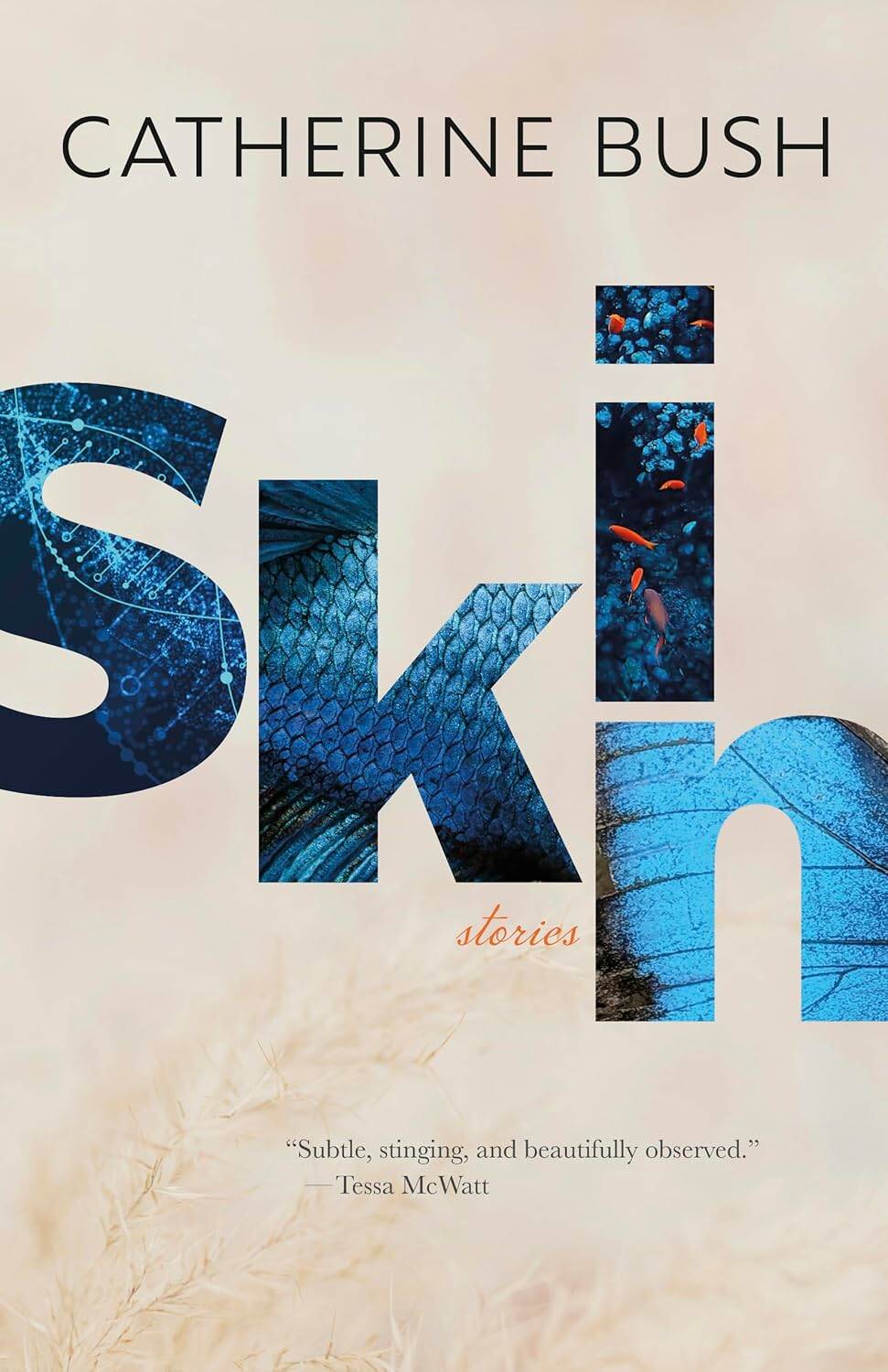Fleshed-out fiction
Bush explores chronic pain, classics, mother-daughter relationships and more in stories
Advertisement
Read this article for free:
or
Already have an account? Log in here »
To continue reading, please subscribe:
Monthly Digital Subscription
$0 for the first 4 weeks*
- Enjoy unlimited reading on winnipegfreepress.com
- Read the E-Edition, our digital replica newspaper
- Access News Break, our award-winning app
- Play interactive puzzles
*No charge for 4 weeks then price increases to the regular rate of $19.95 plus GST every four weeks. Offer available to new and qualified returning subscribers only. Cancel any time.
Monthly Digital Subscription
$4.99/week*
- Enjoy unlimited reading on winnipegfreepress.com
- Read the E-Edition, our digital replica newspaper
- Access News Break, our award-winning app
- Play interactive puzzles
*Billed as $19.95 plus GST every four weeks. Cancel any time.
To continue reading, please subscribe:
Add Free Press access to your Brandon Sun subscription for only an additional
$1 for the first 4 weeks*
*Your next subscription payment will increase by $1.00 and you will be charged $16.99 plus GST for four weeks. After four weeks, your payment will increase to $23.99 plus GST every four weeks.
Read unlimited articles for free today:
or
Already have an account? Log in here »
Hey there, time traveller!
This article was published 03/05/2025 (250 days ago), so information in it may no longer be current.
A new book of fiction from award-winning Canadian novelist Catherine Bush is cause for celebration. Since her 1993 debut, Minus Time, Bush has published five novels to critical acclaim, including 2000’s Rules of Engagement, a New York Times Notable Book, and most recently 2020’s Blaze Island, a contemporary twist on Shakespeare’s The Tempest concerned with climate issues of today.
Bush’s newest book, Skin, marks a shift to short fiction. The collection contains 13 stories of varying lengths and familiar themes, including the climate crisis, retellings of classics, mother-daughter relationships, global emergencies and chronic pain.
Fans of Bush’s 2004 novel Claire’s Head, for instance, might jump ahead to The International Headache Conference, in which a husband conflates fragility with vulnerability when characterizing his wife’s experience of migraines, a cat named Ratso senses pain in humans and nothing but “pitch-dark espresso,” dim lighting and Bach partitas will do to fend off the next headache. A delightful twist on the one-night-stand affair, the story depicts a clandestine cute meetup in which the tie that binds two strangers is the shared understanding of unremitting pain.

Arden Wray photo
One of the pleasures of reading Catherine Bush’s work is her pacing, both in the stories and between books.
Skin itself features prominently throughout the collection. The eponymous story is a flash fiction piece in which a woman compulsively washes the feet of newcomers and refugees. In another two-pager, Touch, the meeting of skin is forbidden by impending pandemic lockdown rules. In Dericho, a man obsessed by the wind seeks “knowledge that could only be reached through sensation.”
In Bush’s epistolary retelling of Edmond Rostand’s Cyrano de Bergerac, called Roxanne (After Edmond Rostand), skin and knowledge are again inseparable, as Roxanne recalls to Cyrano a scene from their past: “I was aware then, as I dropped your hand, how your hands have killed so many. This knowledge, so far from anything I know that hands can do, also lies beneath your skin.”
A standout is Breath, which denotes a daughter-mother dynamic in the context of personal grief and public catastrophe. Temporally layered and superbly realized, the story cuts to the heart of a daughter’s underlying, unspoken disconnect from her mother: “Did I disappoint her, living my quiet life… the texture of my being seemed inexplicable to her.”
The collection begins and ends with dread. The opening novella, Benevolence: An East Village Story, sustains a queasy tension when a teacher takes in her high school student as a lodger, while the final few stories take up as their subject matter the climate and ecological crises of our time.
One of the pleasures of reading Bush’s work is her pacing, both within the stories and amongst the publication of the books themselves, which averages about five years between titles. Readers can trust that nothing is rushed and in the interim, as is stated in the story Glacial, “(c)alm reasserts itself.”
Two editors are credited in the creation of Skin: Goose Lane’s Bethany Gibson and author André Alexis, both of whom have worked with Bush before. This continuity enriches the reader’s experience before it begins.

Skin
Readers of Skin, take heed: this is one to be considered, savoured and celebrated.
Sara Harms is a Winnipeg editor.


